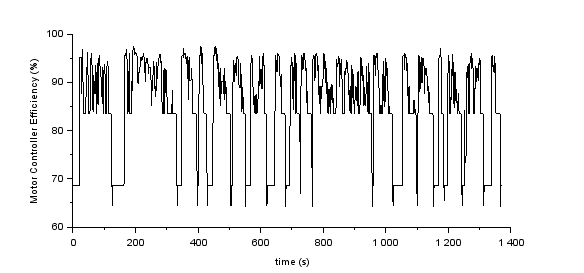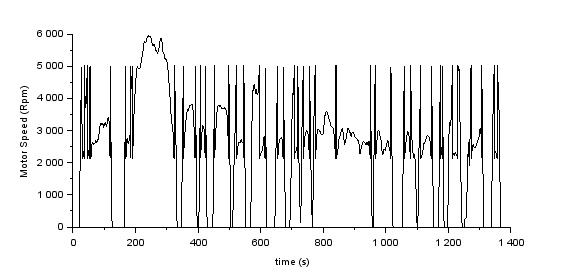Resistance Force modeling & analysis
- Rolling Force
- Gradient Force
- Aerodynamic Force
- Acceleration Force
Evaluation of Wheel (Hub motor configurations)
- Torque
- Speed
Transmission modeling & analysis
- Transmission design calculations
- Single Speed Transmission
- Multi-Speed Transmission
- Analysis of motor operating points
Traction Motor modeling & analysis for
- Nominal & Peak Torque
- Motor RPM
- Motor Power
- Implementation of Motor Dynamic Efficiency plots
- Motor Temperature modeling
- Regenerative energy modeling with Generator mode efficiency
- Evaluation of motor operating Points
- Efficiency analysis for drive cycles
Motor Controller modeling & analysis for
- Implementation of Dynamic Motor Controller Efficiency plots
- Efficiency analysis for drive cycles
Traction Battery modeling & analysis for
- Pack Nominal & Peak current estimations
- Pack Nominal & Peak Power estimations
- Estimation of Energy consumption per Km
- SOC estimations wrt to drive cycle
- Regenerative Energy prediction wrt drive cycle
- Actual Regenerative energy capture wrt cell charging limitations
- SoC estimations with Regenerative energy
- Comparison of energy consumption with and without regenerative Energy
- Discharge/Charge C-rate
- Energy Consumption plot for the different drive cycle
- Tractive Energy
- Regenerative Energy
- Total Energy
- Battery pack Temperature estimations
- Modeling the Battery pack cooling
- Modeling the energy estimations for pack cooling
- Evaluating the selection of cells from various suppliers
- Optimizing the best suitable cell and justifications
Modeling & evaluation of Auxiliary loads
-
Modeling & estimation of HVAC energy
- DuBois area according to ISO 8996
- Metabolic Heat
- Cabin Temperature estimations
- Battery Cooling Power
- Head Lights
- Power Window Motor
- Wiper Motor
- Infotainment System
Results & Decision making
- Transmission sizing
- Motor efficiency operating plots & optimization
- Regenerative energy capture
- Regenerative energy limitations
- Motor temperature modeling
- Battery temperature modeling
- Effect of Auxiliary loads
- Cell selection studies
- Accurate Pack sizing









